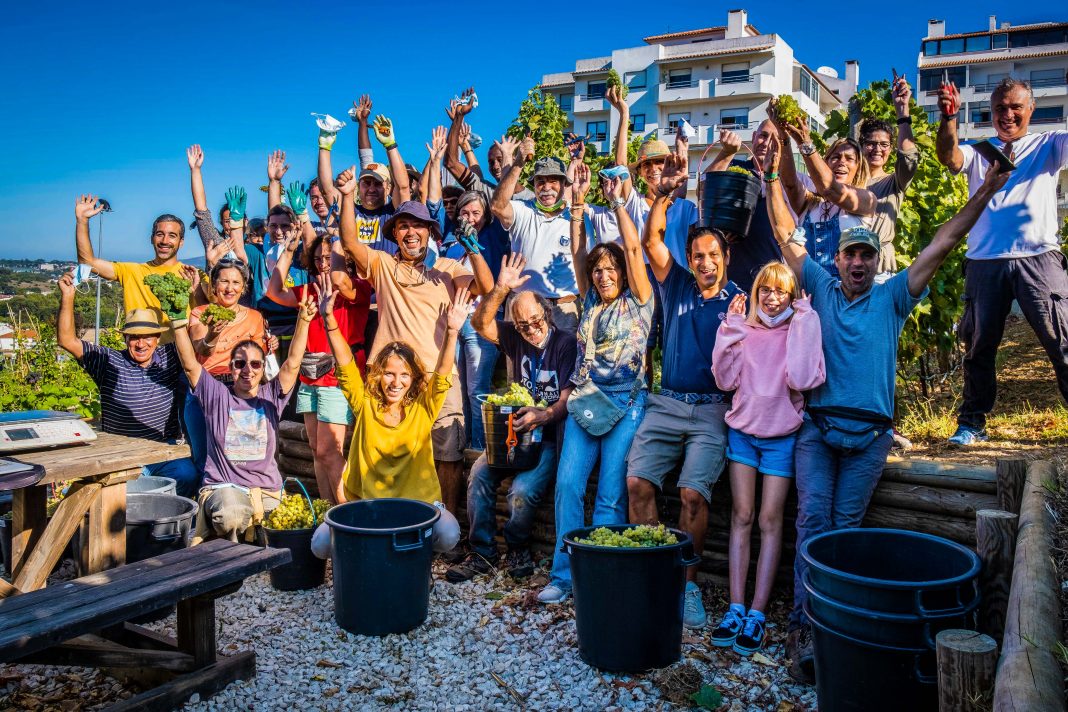“Giving new life to natural spaces and promoting organic urban culture” is the motto of Terras de Cascais. It’s a project working towards bringing people together, reviving the connection with nature, and growing fresh, healthy, home-grown produce. Read about how the project started, why it’s so successful, and what the future holds – all from a valuable member of the board.
Terras de Cascais is the Portuguese town Cascais’ local sustainable food strategy programme, based on the idea that local, seasonal, and organic food should be accessible to all. We conversed with Luís Capão, President of the Executive Board of Ambiente Cascais (the organisation behind Terras de Cascais) about the impact this programme has had and continues to have.
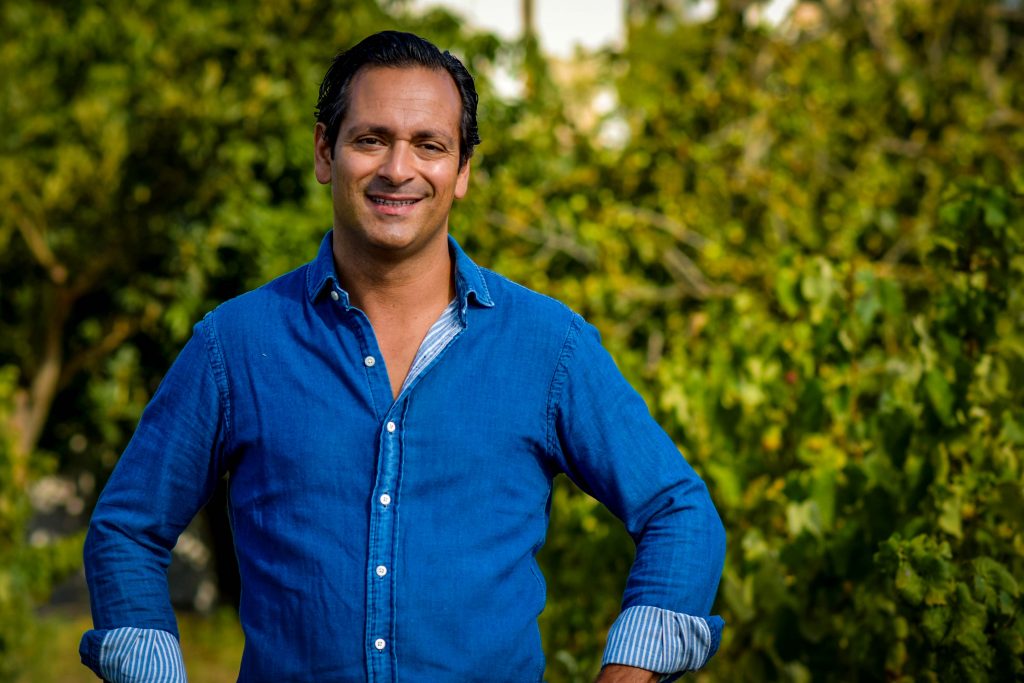
The aim of Terras de Cascais is to promote and support a sustainable agricultural production system on public and private lands in Cascais. “We want an agriculture system that delivers quality, high nutritional value, and delicious food,” Luís says. Their ultimate goal?
“We want to have agriculture favouring the environment and the environment favouring human activity.”
In 2009, Ambiente Cascais created the first Community Vegetable Gardens, which proved to be successful among people either wanting to produce their own food, returning to their roots, or just wanting to reduce their monthly expenses. Consequently, in 2017, Cascais Ambiente created their brand Terras de Cascais, which, in Luís’ words, incorporates “all of Cascais Ambiente’s projects that share the concept of urban, organic, seasonal, and local agriculture.”
No wonder they have chosen the programme’s name to be ‘Lands of Cascais’. As of 2021, Terras de Cascais represents a solid brand, consisting of 27 community and 2 associate gardens, 3 vineyards, and 2 community orchards, totalling up to 631 families cultivating their piece of land in a sustainable way.
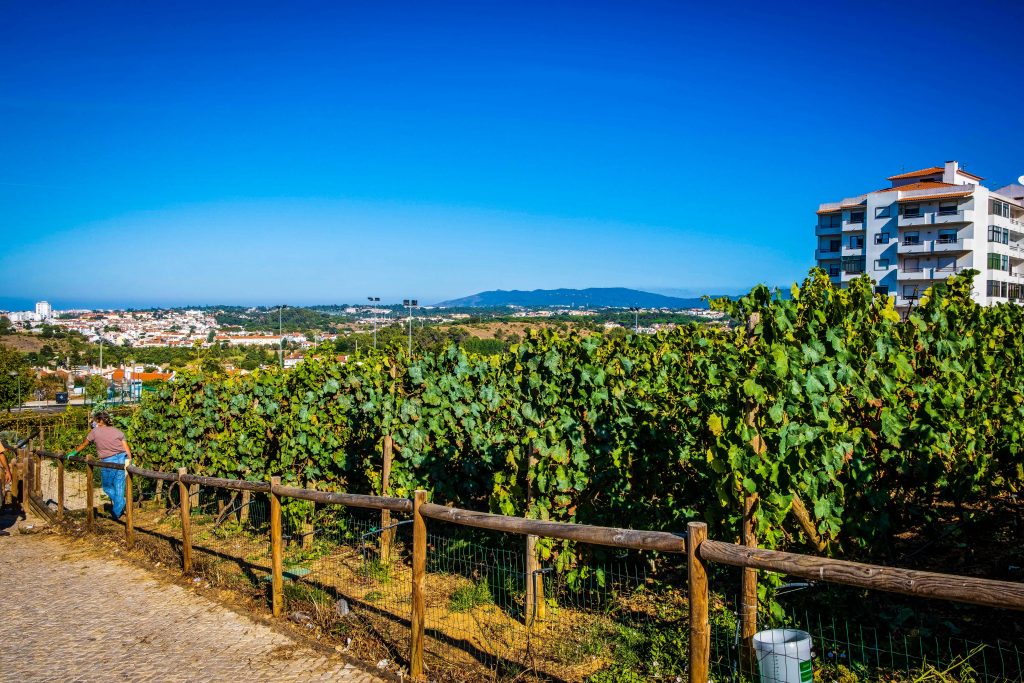
In Connection with Nature
“In Cascais, we live surrounded by nature,” Luís says, so it’s no surprise the idea for Terras de Cascais grew influenced by nature.
“There is a mindset in this administration and in Cascais people that is predisposed to the protection of the environment in which we live.”
Being exposed to nature, it’s only natural they want to protect it. In fact, “Cascais was the first Portuguese local government to have a Climate Change Adaptation Plan,” Luís informs us.
Now, Terras de Cascais stands as one of the leading cases in the field of developing policies and programmes to promote sustainable agricultural production – in Portugal and around the world. “Many municipalities and foreign research entities come visit us to learn from our good examples and learnt lessons,” Luís states.
Learning & Educational Experience
But it’s not just about community gardens – it’s more. Terras de Cascais provides training for gardeners and non-gardeners, as well as a vast number of other projects:
Opportunities for Schools
One programme is called School Organic Gardens, which stimulates children to be aware of nature’s cycles and its food production. “In these School Gardens, children have the opportunity to learn about seeds and crops along with concepts such as sum, division, area, or seasons,” Luís explains further. Since the start of the programme in 2012, 70 schools with 23,400 students have participated and benefited from Terras de Cascais’ various organised activities and lessons.
Opportunities for Entrepreneurs
Another programme under Terras de Cascais is Nest Gardens, aiming “to provide conditions for young entrepreneurs who want to start in the local production of food, enhancing regional development, and the creation of new jobs.” The organisation additionally provides a land database “to promote the encounter between landlords and agriculture entrepreneurs seeking to establish organic farms in Cascais,” Luís informs us.
Opportunities for Different Generations
Bridging the generational gap is sometimes harder than it seems. Gardens, however, help restore balance:
“We have two vegetable gardeners with plots next to each other, who started out not getting along. The older one enjoyed the silence of the field, and the younger one would carry a speaker to play music while he worked in the garden. It didn’t go well at first. But then the younger man’s wife got pregnant, and when the baby was born, they started to get closer. Today, the older man is a ‘borrowed’ grandfather of that child. When the parents need help, he’s the one who picks up the kid from day-care, he’s present at birthdays, they exchange gifts at Christmas”, Luis says, sharing with us this story of successfully finding the middle ground through a shared interest in gardening.
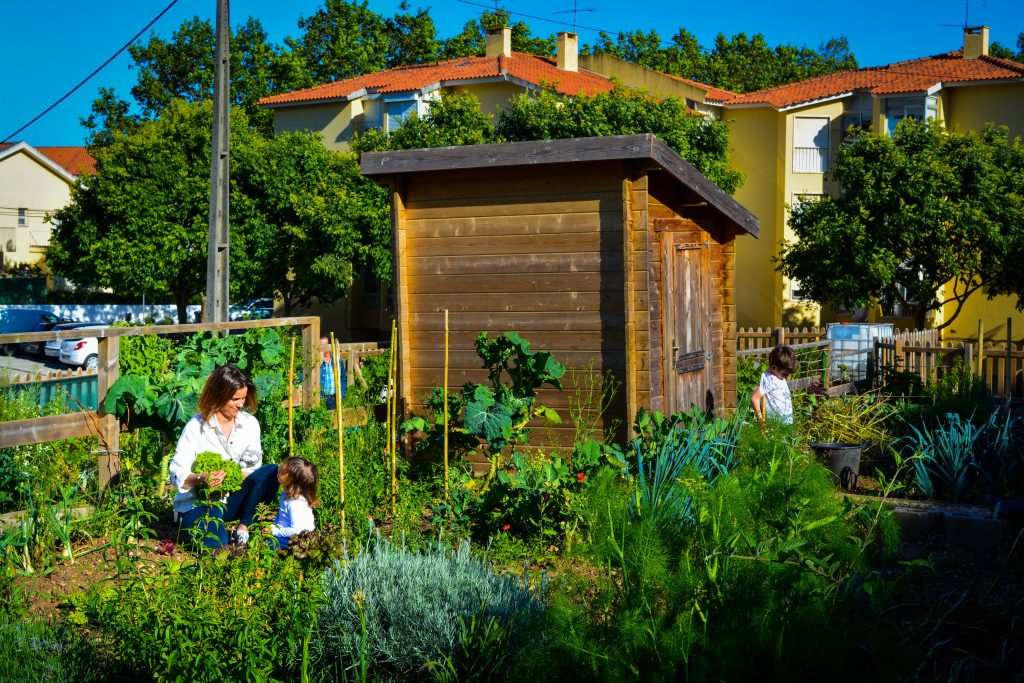
Opportunities for Everyone
All in all, with community gardening, cities gain:
- happier and healthier citizens who are more willing to participate in the co-management of the public space,
- a better food landscape and the territory’s food independence from external factors,
- increased environmental literacy through practice,
- increased empowerment and self-employment,
- investors and qualified human resources – to name a few.
As Luís says: “The benefits are immense.”
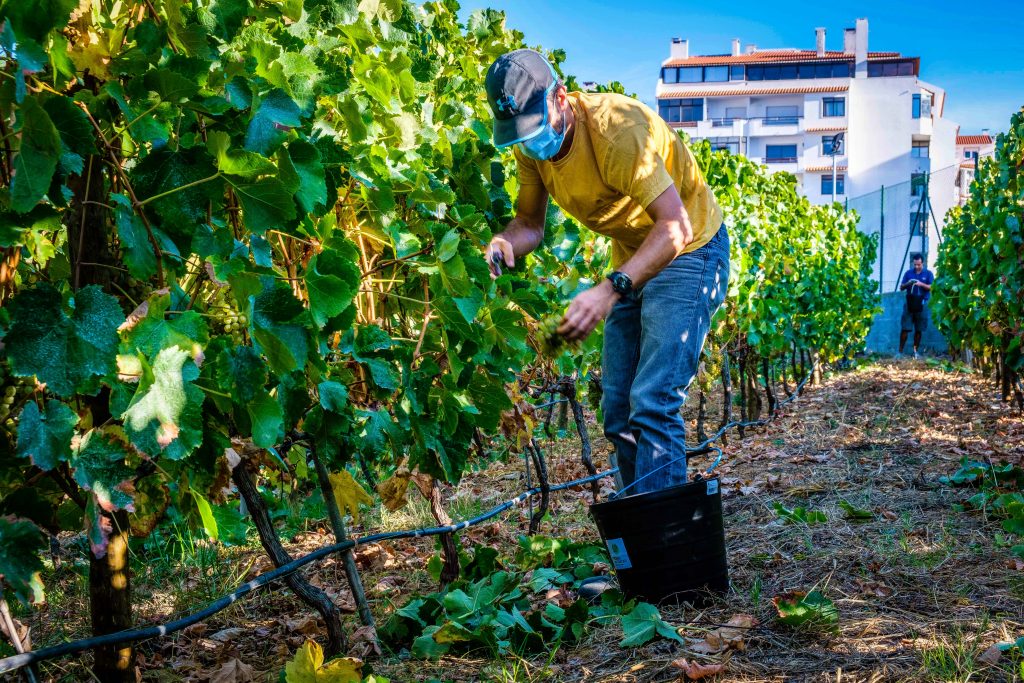
Terras de Cascais helps restore a sense of community:
“People become friends. Then, because the management of the community garden is made collectively, people start making decisions for the common good and not just for the individual. We see neighbourhood relationships flourishing in mutual care and attention.”
Noteworthy Achievements
Among other plots of land, Terras de Cascais owns a very popular vegetable garden at Quinta do Pisão, where residents of Cascais can pick and buy fresh vegetables. All of its production gets picked up and used, representing to Luís a great success of their strategy as it means individuals and restaurants appreciate and are aware of the importance of local and seasonal products.
Another indicator of increasing awareness for healthy, fresh, locally produced food is the fact that their waiting list for available allotments in community gardens is long. Despite adding more and more plots to their already big collection each year, there’s still not enough to satisfy their demand.
Why the programme is such a success is clear enough: “people quickly engage,” and the brand “speaks of returning to our origins and food wellness, good neighbourly relationships and proximity,” Luís summarises.
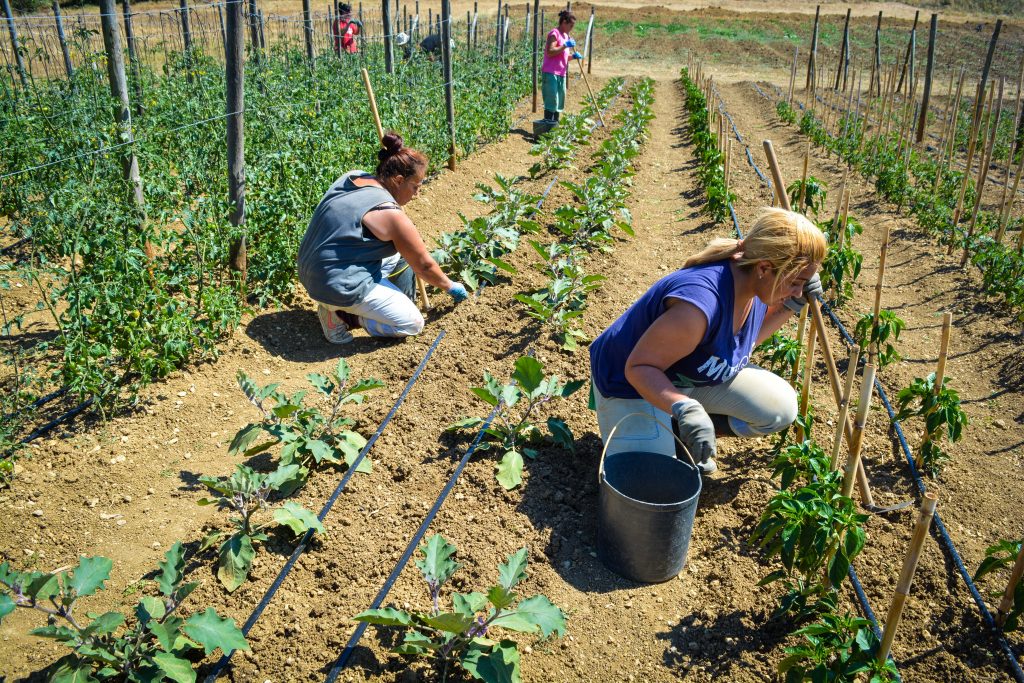
Further Impacts
“At Cascais Ambiente, we have a culture of knowledge sharing, both in the agricultural sector and in all other environmental policy sectors in which we operate,” Luís points out. Therefore, they have a vision for the future to spread the concept of food production among citizens and companies even more, and to attract more investors, supporting this cause.
Sharing their knowledge, their work, and results is not an issue for them as:
“We know that only when many converge towards this type of production can we really make the difference that the planet needs.”
Their ambitions don’t stop here; they wish for their organisation, with its local action and knowledge, to be involved in “local decision-making and development of national and European public policies.”
Get Involved
All that being said, when it comes to participating, you can get involved easily. All you need to do is register at ambiente.cascais.pt, and gain access to information about their workshops, meetings, field training, and get involved with the community.
And if you want to start a similar project in your city, Luís has the perfect advice: “Do it! But not alone!” Find people in your community who also wish to grow their own food. Search for initiatives that can “help you lay the foundations of a sustainable project, choose the right sources of information and good examples to support an assertive policy.” You can also contact and visit Terras de Cascais – “we have a sharing culture, we are always available to receive those who want to walk the path to a sustainable farming ecosystem,” adds Luís friendly.

